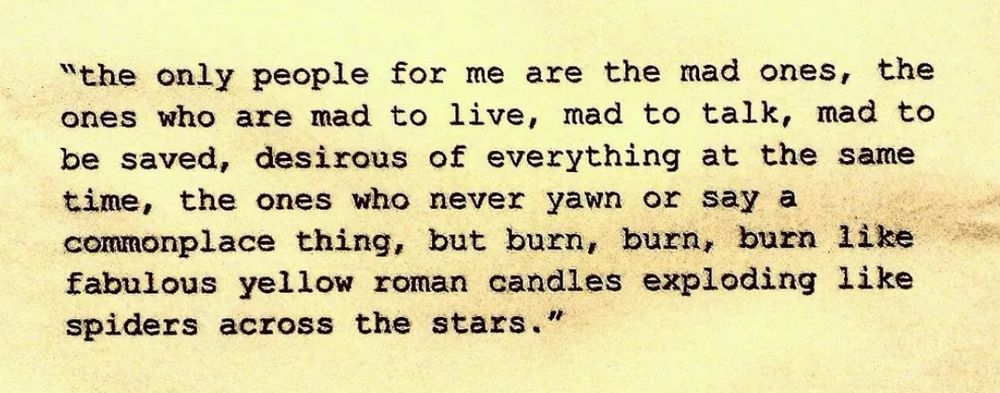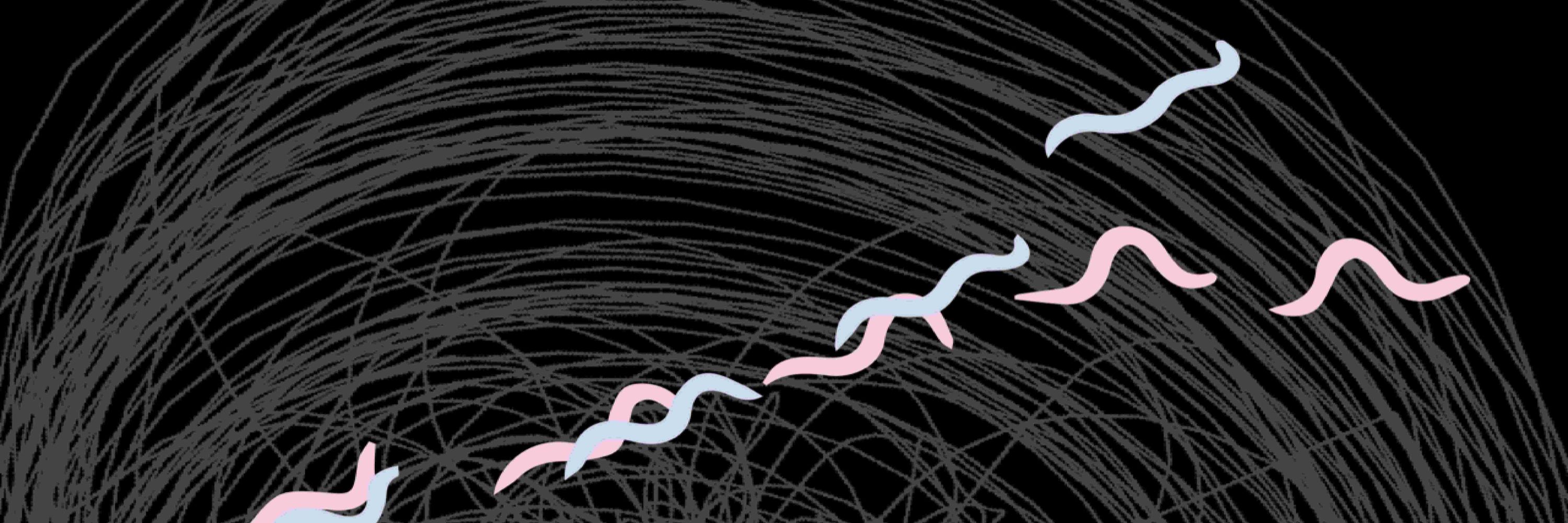
Greg Stephens
@gjstephens.bsky.social
Theoretical physicist thinking about living and complex systems. Faculty at VU Amsterdam & OIST Graduate University
An excellent opportunity for early-career researchers! Fellows receive salary comparable to an Assistant Professor position and research funds. For 2026, the program invites theory‑focused researchers in natural sciences and technology: www.oist.jp/research/bur... @oistedu.bsky.social

Buribushi Fellowship
www.oist.jp
October 29, 2025 at 5:20 PM
An excellent opportunity for early-career researchers! Fellows receive salary comparable to an Assistant Professor position and research funds. For 2026, the program invites theory‑focused researchers in natural sciences and technology: www.oist.jp/research/bur... @oistedu.bsky.social
Yay for worms!
September 27, 2025 at 9:47 AM
Yay for worms!
Within 7 years of the start of your independent position, apply for the APS DBIO early career award! engage.aps.org/dbio/honors/...
Prizes & Awards - Unit - DBIO
engage.aps.org
September 20, 2025 at 7:17 AM
Within 7 years of the start of your independent position, apply for the APS DBIO early career award! engage.aps.org/dbio/honors/...
Fun!
And we are live!
Excited to announce the 2025 Multi-Agent Behavior Challenge on cross-lab supervised action recognition in mice 🐁🐀🖱️
Running on Kaggle until December 15th, with a $50,000 prize pool going to the top five submissions!
www.kaggle.com/competitions...
Excited to announce the 2025 Multi-Agent Behavior Challenge on cross-lab supervised action recognition in mice 🐁🐀🖱️
Running on Kaggle until December 15th, with a $50,000 prize pool going to the top five submissions!
www.kaggle.com/competitions...

September 18, 2025 at 6:26 PM
Fun!
This looks really cool!
Complex behaviour is not limited to animals! Here we map the entire spectrum of waveforms dynamics on a quadriflagellate single cell with 4x 70um (!) #cilia, to a low dimensional behavioural manifold with surprising structure! #protistsonsky
All revealed in our new preprint doi.org/10.1101/2025...
All revealed in our new preprint doi.org/10.1101/2025...
September 16, 2025 at 10:59 AM
This looks really cool!
This is good!
The difference between doing a project and presenting it. An observation can lead to many avenues of explorations before focus turns to a specific discovery. Presenting it, in a talk / paper, follows inversely, with broad perspectives coming before & after the specific discovery.

August 18, 2025 at 6:41 AM
This is good!
Great course in a beautiful and storied location!
📢🧠 #Neuroscience researchers: Level up your skills and reimagine behavior quantification at @jacksonlab.bsky.social's #MachineLearning Course from Oct. 12 – 17.
Organized by @vivekdna.bsky.social, @gordonberman.bsky.social, @goldenneuron.bsky.social & Ann Kennedy.
More details and link below 👇
Organized by @vivekdna.bsky.social, @gordonberman.bsky.social, @goldenneuron.bsky.social & Ann Kennedy.
More details and link below 👇

August 13, 2025 at 1:49 PM
Great course in a beautiful and storied location!
This will be quite fun! Join us in September for "“Physics of Adaptation & Decision Making in Biology” www.fluidlab.nl/padm25
VPF10 — Research Group | Mazi Jalaal | UvA
www.fluidlab.nl
August 12, 2025 at 11:18 AM
This will be quite fun! Join us in September for "“Physics of Adaptation & Decision Making in Biology” www.fluidlab.nl/padm25
Reposted by Greg Stephens
It was an honor to write this, but also great fun. A chance to look back at the classics, and think about the path forward. #Physics is a beautiful human endeavor. journals.aps.org/prxlife/abst...
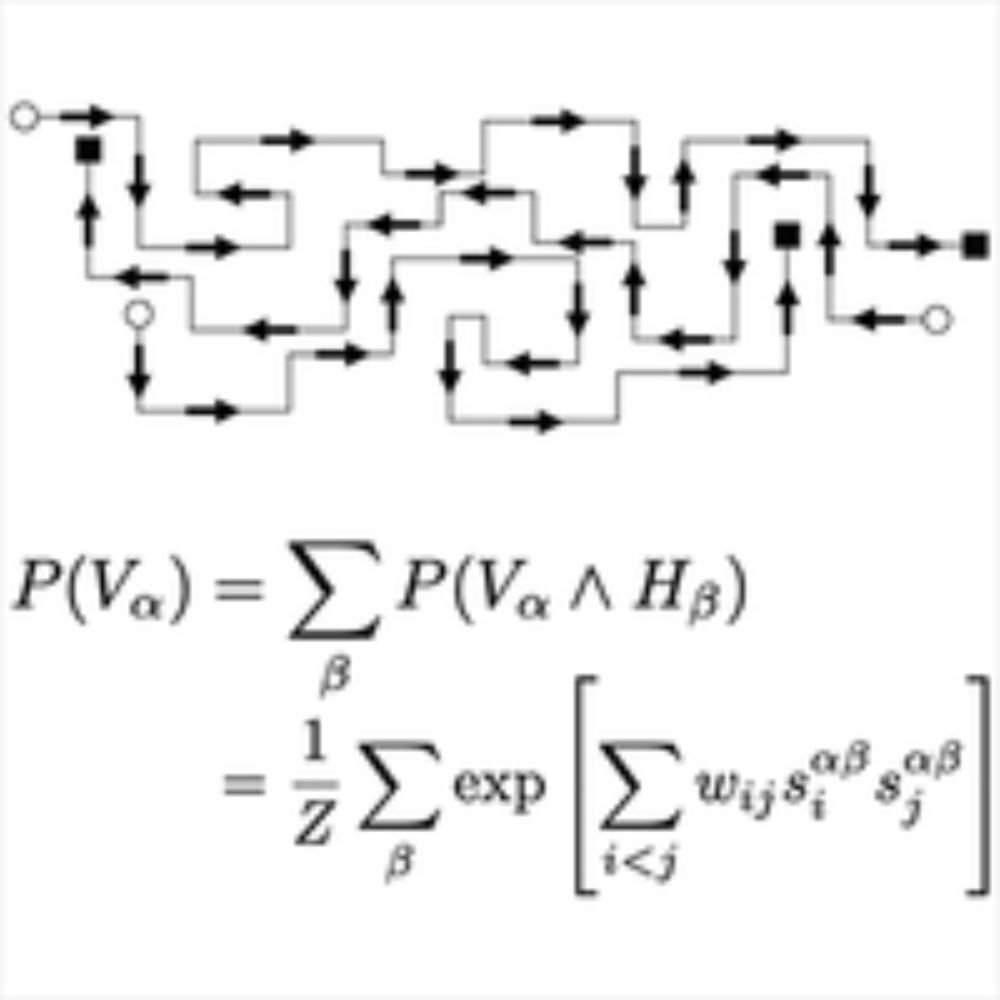
Emergence of Brains
This review traces how ideas from statistical physics evolved into foundational models of neural computation, shaping modern AI and culminating in the 2024 Nobel Prize in Physics.
journals.aps.org
August 9, 2025 at 2:19 PM
It was an honor to write this, but also great fun. A chance to look back at the classics, and think about the path forward. #Physics is a beautiful human endeavor. journals.aps.org/prxlife/abst...
Reposted by Greg Stephens
We have a postdoc opening for a protistologist with biophysics inclinations to join our @hfspo.bsky.social project! (focus will be on characterising the morphology, ultrastructure and behaviour of excavates) #protistsonsky
Apply by Sept 17th (RTs appreciated!)
jobs.exeter.ac.uk/hrpr_webrecr...
Apply by Sept 17th (RTs appreciated!)
jobs.exeter.ac.uk/hrpr_webrecr...
August 6, 2025 at 7:19 PM
We have a postdoc opening for a protistologist with biophysics inclinations to join our @hfspo.bsky.social project! (focus will be on characterising the morphology, ultrastructure and behaviour of excavates) #protistsonsky
Apply by Sept 17th (RTs appreciated!)
jobs.exeter.ac.uk/hrpr_webrecr...
Apply by Sept 17th (RTs appreciated!)
jobs.exeter.ac.uk/hrpr_webrecr...
Well-deserved!
Very happy about my former mentor Sara Solla having received the Valentin Braitenberg Award for her lifelong contributions to computational neuroscience!
Sara will be giving a lecture at the upcoming @bernsteinneuro.bsky.social meeting which you shouldn't miss.
bernstein-network.de/en/newsroom/...
Sara will be giving a lecture at the upcoming @bernsteinneuro.bsky.social meeting which you shouldn't miss.
bernstein-network.de/en/newsroom/...
Sara A. Solla receives the Valentin Braitenberg Award for Computational Neuroscience 2025 – Bernstein Network Computational Neuroscience
bernstein-network.de
August 6, 2025 at 3:44 PM
Well-deserved!
Time for more "Physics of Behavior" in single-cell settings! @micromotility.bsky.social @koseskalab.bsky.social
Forgotten studies from the early 20th century are helping scientists probe how and whether individual cells can learn and remember.
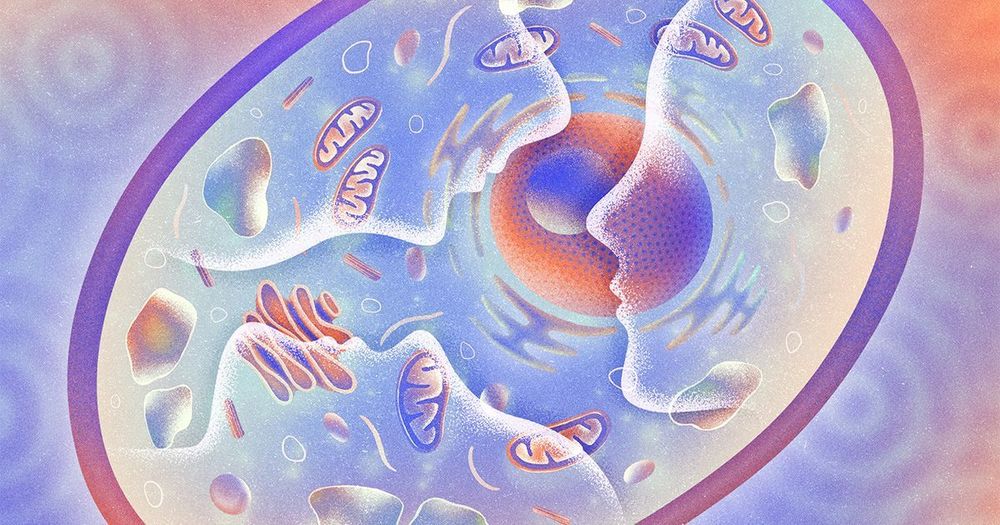
What Can a Cell Remember? | Quanta Magazine
A small but enthusiastic group of neuroscientists is exhuming overlooked experiments and performing new ones to explore whether cells record past experiences — fundamentally challenging what memory…
www.quantamagazine.org
August 2, 2025 at 7:39 AM
Time for more "Physics of Behavior" in single-cell settings! @micromotility.bsky.social @koseskalab.bsky.social
Cool...but also...eew!
www.nytimes.com/interactive/...
www.nytimes.com/interactive/...

What’s That Splatter on Your Windshield? (Gift Article)
Can you identify what insects are pelting your vehicle during your summer road trip? Take this quiz and see what you can learn from these close encounters.
www.nytimes.com
July 23, 2025 at 11:56 AM
Cool...but also...eew!
www.nytimes.com/interactive/...
www.nytimes.com/interactive/...
(1/4) I’m happy to introduce our new work led by PhD student Akira Kawano (not on Bluesky), which explores social behavior as mutual prediction, quantified by the decomposition of information (PID) between the past and future of a multi-organism system: doi.org/10.1101/2025...
Decomposing Predictive Information in Social Dynamics
Social behaviors include some of the most interesting interactions in living systems yet their characterization is often qualitative or specialized to particular organisms and assays. Here we suggest that at the core of social interactions is the notion of mutual prediction, which we analyze in the context of two male zebrafish engaged in a dominance contest. Using 3D velocity trajectories, we construct the mutual information between a two-animal past and one-animal future, and we quantify the redundant, unique, and synergistic components using partial information decomposition (PID). As social behaviors can change rapidly in time, we compute PID using a sliding time window, and we choose the window size to maximize total information. We find that our predictive information decomposition naturally aligns with important social concepts, such as mirroring and dominance. At the end of the contest, we find asymmetries in self-unique and redundant information which align with the emergent dominance relationship. During the contest, we find that redundant information increases, showing that predictive information is increasingly shared between individuals. In contrast synergistic and unique information, which capture information exchange, are approximately constant. Applied to mecp2 zebrafish mutants, an autism model, we find that predictive information is reduced overall, but especially for synergistic flows, which is indicative of difficulties in more complex social dynamics. Significance Statement Social interactions are rich and diverse, ranging from mirroring to complementary actions. A unifying framework for defining and analyzing such interaction types has long been needed. Here, based on modern information theory, we formulate how the past state of interacting organisms encodes the future state of an individual. This framework provides a natural decomposition of pairwise social dynamics into mirroring, independent action, directed influence, and joint action. Applied to dominance contests in zebrafish, these modes of interaction capture distinct phases of conflict, their assessment strategies, and the resulting dominance relationships. Moreover, our analysis reveals a specific disruption in the social behavior of mutant zebrafish linked to autism, shedding new light on impairments in communication and social learning. ### Competing Interest Statement The authors have declared no competing interest. OIST Graduate University
doi.org
July 9, 2025 at 11:42 AM
(1/4) I’m happy to introduce our new work led by PhD student Akira Kawano (not on Bluesky), which explores social behavior as mutual prediction, quantified by the decomposition of information (PID) between the past and future of a multi-organism system: doi.org/10.1101/2025...
Oh yes!
June 24, 2025 at 9:27 AM
Oh yes!
Reposted by Greg Stephens
For the first time, scientists have filmed microscopic worms called nematodes in the wild as they glom together and form large wriggling masses.
Learn more: scim.ag/3FBwSx3
Learn more: scim.ag/3FBwSx3
June 11, 2025 at 6:21 PM
For the first time, scientists have filmed microscopic worms called nematodes in the wild as they glom together and form large wriggling masses.
Learn more: scim.ag/3FBwSx3
Learn more: scim.ag/3FBwSx3
Revolutionary when idTracker first came on the scene, so really excited to get to know the new approach!
It took us many years to improve idtracker.ai in both accuracy and tracking time. Here it is.
June 3, 2025 at 6:44 PM
Revolutionary when idTracker first came on the scene, so really excited to get to know the new approach!
Reposted by Greg Stephens
The OIST Graduate School has opened a Special PhD Admissions Portal for students currently enrolled in, or accepted to, universities in the U.S. #PhDProgram www.oist.jp/admissions/s...

Special Application Deadline for Students Accepted or Studying in the United States
www.oist.jp
June 3, 2025 at 4:38 AM
The OIST Graduate School has opened a Special PhD Admissions Portal for students currently enrolled in, or accepted to, universities in the U.S. #PhDProgram www.oist.jp/admissions/s...
Reposted by Greg Stephens
PhD students interested in ecology and evolution -- consider applying. Reach out to me if you are interested in discussing. www.simonsfoundation.org/grant/simons...

Simons Graduate Fellowships in Ecology and Evolution
The purpose of these awards is to provide support for students entering U.S.-based Ph.D. programs with a plan to perform research in ecology and evolution. While we will consider all projects in ecolo...
www.simonsfoundation.org
June 2, 2025 at 9:14 PM
PhD students interested in ecology and evolution -- consider applying. Reach out to me if you are interested in discussing. www.simonsfoundation.org/grant/simons...
A vital and very enjoyable component of my academic work is teaching students at all levels how to extend the frontiers of knowledge. So I’m pleased to announce a set of Jupyter notebooks organized around our ideas for “physics of behavior”. You can find them here: github.com/oist/Physics...
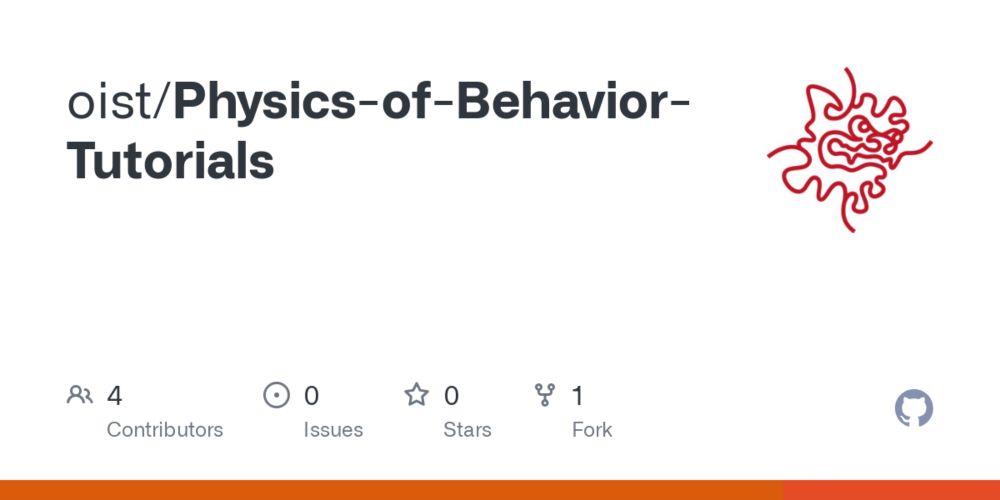
GitHub - oist/Physics-of-Behavior-Tutorials
Contribute to oist/Physics-of-Behavior-Tutorials development by creating an account on GitHub.
github.com
May 30, 2025 at 7:49 AM
A vital and very enjoyable component of my academic work is teaching students at all levels how to extend the frontiers of knowledge. So I’m pleased to announce a set of Jupyter notebooks organized around our ideas for “physics of behavior”. You can find them here: github.com/oist/Physics...
Reposted by Greg Stephens
Obit for Peter Lax, an applied mathematician who did pioneering work in PDEs, solitons, and computational science.
www.nytimes.com/2025/05/16/s...
www.nytimes.com/2025/05/16/s...

Peter Lax, Pre-eminent Cold War Mathematician, Dies at 99
www.nytimes.com
May 17, 2025 at 4:43 PM
Obit for Peter Lax, an applied mathematician who did pioneering work in PDEs, solitons, and computational science.
www.nytimes.com/2025/05/16/s...
www.nytimes.com/2025/05/16/s...
Reposted by Greg Stephens
It was a great conference with such diverse topics. The interactive discussion rounds were particularly stimulating! Congratulations to the organizers for making such a stimulating conference possible 🎉
May 9, 2025 at 2:13 PM
It was a great conference with such diverse topics. The interactive discussion rounds were particularly stimulating! Congratulations to the organizers for making such a stimulating conference possible 🎉
Reposted by Greg Stephens
After three years do we finally have a definition of what is a theory? Or more importantly, why biology continues to confound physicists...? (By James DiFrisco)
Also importance of evolutionary context from Crick's autobiography! #EESTCBio
Also importance of evolutionary context from Crick's autobiography! #EESTCBio


May 7, 2025 at 7:52 AM
After three years do we finally have a definition of what is a theory? Or more importantly, why biology continues to confound physicists...? (By James DiFrisco)
Also importance of evolutionary context from Crick's autobiography! #EESTCBio
Also importance of evolutionary context from Crick's autobiography! #EESTCBio
Reposted by Greg Stephens
It was great fun chatting with Avaneesh Narla about the physics of behavior across species, and its implications for neuroscience, ecology and evolution. Check out his "Kugelblitz" podcast for great science content!
open.spotify.com/episode/0pMC...
open.spotify.com/episode/0pMC...

The Physics of Behavior with Antonio Costa
Kugelblitz · Episode
open.spotify.com
April 26, 2025 at 7:30 AM
It was great fun chatting with Avaneesh Narla about the physics of behavior across species, and its implications for neuroscience, ecology and evolution. Check out his "Kugelblitz" podcast for great science content!
open.spotify.com/episode/0pMC...
open.spotify.com/episode/0pMC...
Reposted by Greg Stephens
How Rat Watching Can Yield Benefits for People
New AI method lets researchers get better handle on brain-behavior link, and may offer insights into disorders like autism.
From @olveczky.bsky.social and colleagues. Co-first authors Ugne Klibaite and Tianqing Li. news.harvard.edu/gazette/stor...
New AI method lets researchers get better handle on brain-behavior link, and may offer insights into disorders like autism.
From @olveczky.bsky.social and colleagues. Co-first authors Ugne Klibaite and Tianqing Li. news.harvard.edu/gazette/stor...

How rat watching can yield benefits for people — Harvard Gazette
New AI method lets researchers get better handle on brain-behavior link, may offer insights into disorders like autism.
news.harvard.edu
April 23, 2025 at 7:10 PM
How Rat Watching Can Yield Benefits for People
New AI method lets researchers get better handle on brain-behavior link, and may offer insights into disorders like autism.
From @olveczky.bsky.social and colleagues. Co-first authors Ugne Klibaite and Tianqing Li. news.harvard.edu/gazette/stor...
New AI method lets researchers get better handle on brain-behavior link, and may offer insights into disorders like autism.
From @olveczky.bsky.social and colleagues. Co-first authors Ugne Klibaite and Tianqing Li. news.harvard.edu/gazette/stor...


